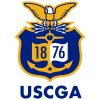 A team of four cadets, the Cyber Guardians, took home 2nd place at the Paris Cyber 9/12 Strategy Challenge. The Team members were 1/c Dillon Nitz, 1/c Zoe Cousineau, 1/c Harlan Brady, and 1/c Alexandra Kukal.
A team of four cadets, the Cyber Guardians, took home 2nd place at the Paris Cyber 9/12 Strategy Challenge. The Team members were 1/c Dillon Nitz, 1/c Zoe Cousineau, 1/c Harlan Brady, and 1/c Alexandra Kukal.
Competing against 16 teams from France, the U.S., Kazakhstan, and the U.K., the Cyber Guardians demonstrated their knowledge and understanding of cybersecurity and strategic policymaking.
“The competition gives you an intelligence report and you have to brief the stakeholders on what should be done about the problem,” said 1/c Zoe Cousineau. “A lot of our work was researching stakeholders, French law, and various international relations going on in the world today. Because this was a French competition, using U.S. law and stakeholders would not be applicable.”
The Team advanced to the finals alongside the Air War College team from the U.S. Air Force and an all-women’s team from France. The finals involved a high-pressure scenario where teams were given just 15 minutes to prepare a brief that included policy recommendations delivered to a panel of judges. The Team then had to respond to follow up questions the judges had on their recommended courses of action. Despite the demanding conditions, the Cyber Guardians took home 2nd place. Comprised of 1 cyber systems major and 3 government majors, the Team came together, with each member providing his/her own area of expertise to conquer the challenges.
“Collaborating with the government majors was a truly eye-opening experience. As a cyber major, I focus on technical proficiency and how to solve a problem. The challenge was about problem solving, but there are a lot of nuances to international issues and what can be done. Additionally, it was interesting to observe how we looked at and dealt with issues differently. The government majors looked to collaborate on every part of the project, while I am used to the style of ‘divide and conquer.’ Both have their strengths, and we were able to use both methods to not only ensure we were on the same page about the project but also complete tasks efficiently,” said Cousineau.
With the Team members set to graduate and go off into the Coast Guard fleet, each cadet has taken some lessons learned from this experience to apply to his/her new-found officer role. 1/c Brady will be stationed in Honolulu, Hawaii on CGC MIDGETT.
“One of my biggest leadership takeaways from this experience is that everyone looks at a situation differently. Outside of suggesting different policy recommendations and options, it was evident that each member of our group brainstormed, presented information, and thought very differently. Some of the Team immediately started writing drafts while others on the Team preferred to talk through the factors before focusing in on ideas. Some of the Team excelled at geopolitical, legal, and diplomatic aspects. Others were able to suggest unique and outlandish courses of action akin to the C.I.A. operation to save six American diplomats during the 1979 hostage crisis, as seen in Argo. As I prepare to graduate, I hope to always remember that everyone brings something to the table. No idea is a bad suggestion, because sometimes seemingly bad ideas spark a great idea from elsewhere,” said Brady.
Cousineau will be reporting to USCGC MACKINAW in Cheboygan, MI.
“This competition impacted my leadership by not only learning how to speak to a nontechnical audience, but also how to work with a team that had different views,” said Cousineau. “As we split up the presentation, we would have someone other than me answer a question or talk about cyber capabilities, so ensuring that each member understood what the technical capabilities meant.”
